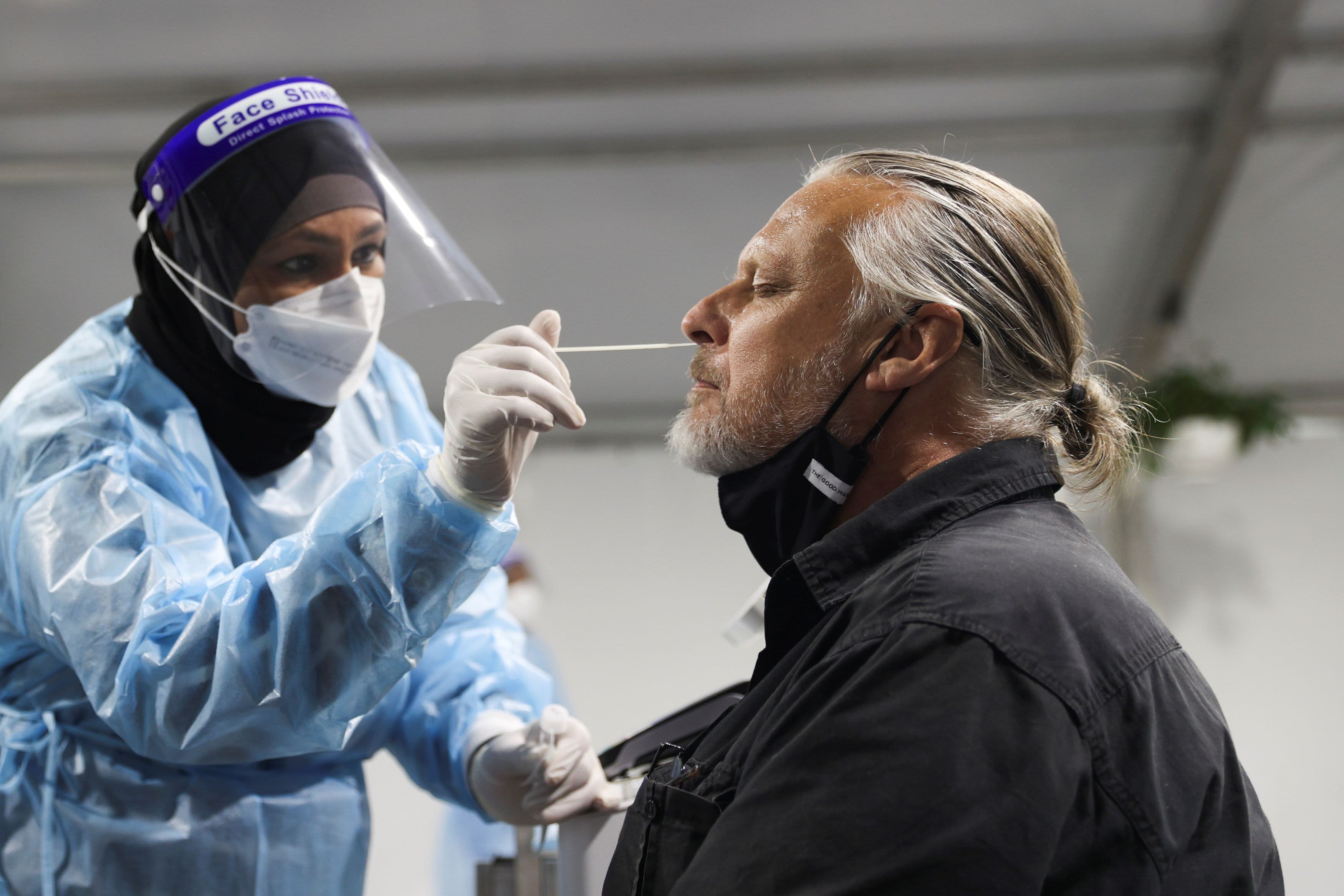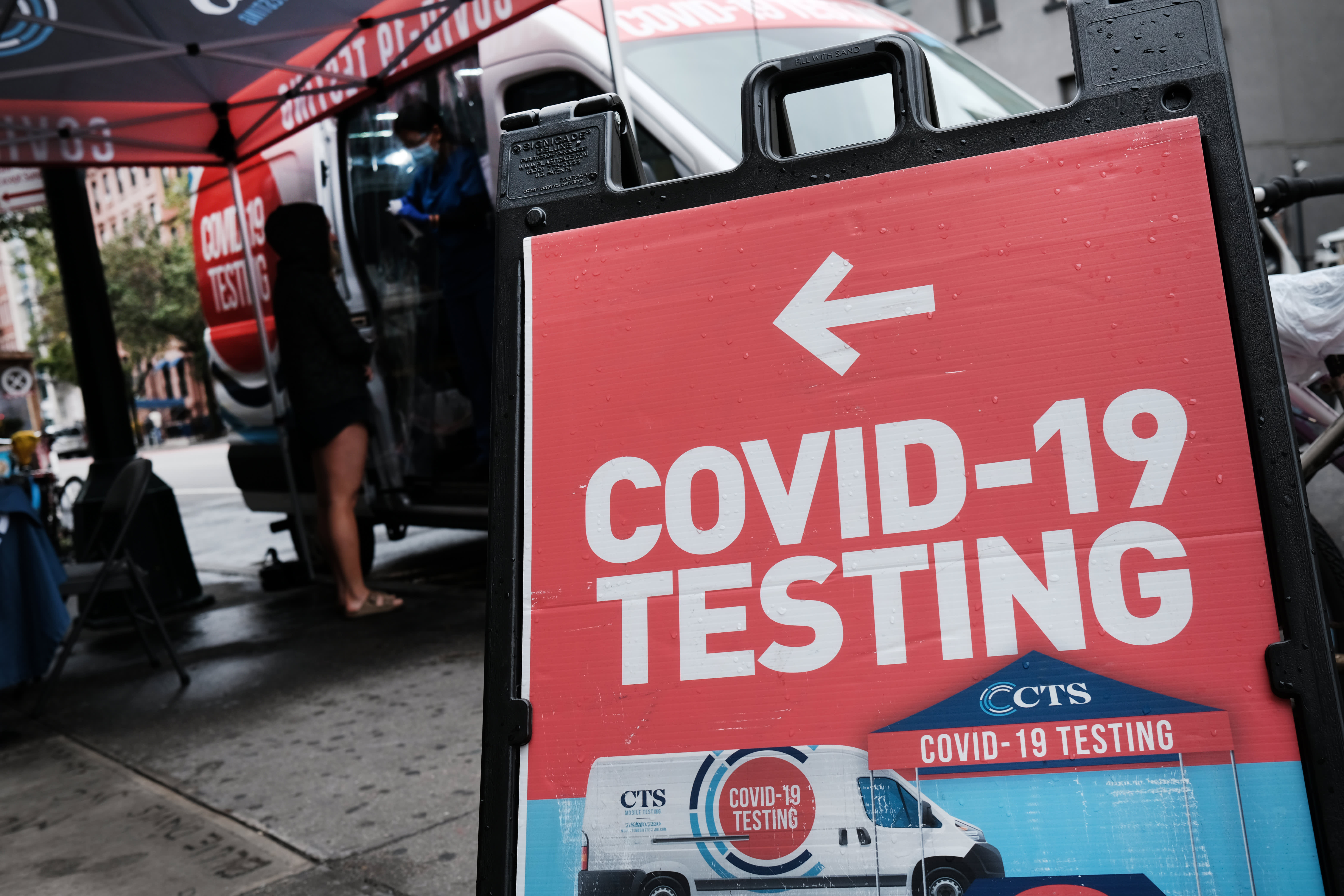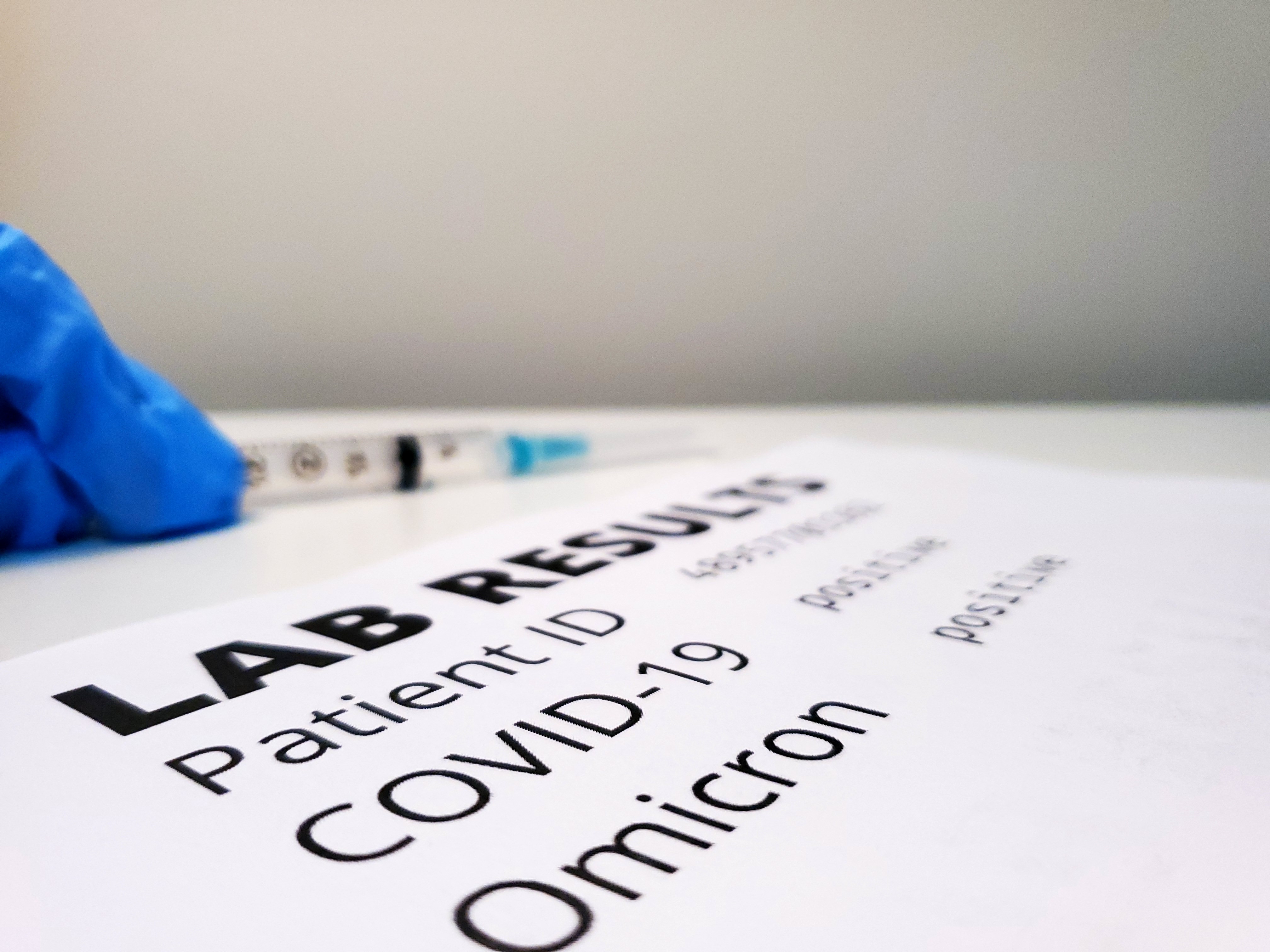Earlier this month, the Center for Disease Control and Prevention cleared the way for all adults to get a COVID-19 booster shot, if they want one. But now, with the emergence of the new omicron variant, the CDC is intensifying that message — saying those over 18 years old should get one.
"Everyone ages 18 and older should get a booster shot ... when they are six months after their initial Pfizer or Moderna series," CDC Director Dr. Rochelle Walensky said in a statement Monday.
"The recent emergence of the omicron variant (B.1.1.529) further emphasizes the importance of vaccination, boosters, and prevention efforts needed to protect against COVID-19," she added.
The omicron variant, first discovered in South Africa, is classified as a "variant of concern" by the CDC, meaning "there is evidence of an increase in transmissibility" and "more severe disease (e.g., increased hospitalizations or deaths)."
The World Health Organization echoes that sentiment, saying the omicron variant is highly contagious, and that "preliminary evidence suggests there may be an increased risk of reinfection."
The city of Chicago is also recommending COVID booster shots
Chicago Mayor Lori Lightfoot and Chicago Department of Public Health Commissioner Dr. Allison Arwady Monday in a joint statement strongly encouraged Chicagoans to get a COVID booster shot, even though many unanswered questions around omicron remain.
"At this point, there are many questions which scientists across the world, and at the Chicago Department of Public Health, are actively working to address all while closely monitoring this strain," a joint statement read.
"While that work continues, we must as a city, and importantly as individuals, continue to follow the public health guidance: get vaccinated, and if vaccinated, get your booster; wear a mask indoors and when you're around other people; and if you are feeling sick, stay home to save lives."
Feeling out of the loop? We'll catch you up on the Chicago news you need to know. Sign up for the weekly Chicago Catch-Up newsletter.
Will teens soon be eligible for the COVID booster shot?
Pfizer is expected to seek emergency approval from the Food and Drug Administration for 16 and 17-year-olds to get a third COVID-19 booster shot this week.
If it is granted emergency use authorization, the additional Pfizer-BioNTech shot would be the first vaccine booster for teens younger than 18.
How effective are vaccines against the omicron variant?
As global concern over omicron continues, vaccine makers Moderna and Pfizer say they are studying vaccine effectiveness against the variant.
Moderna's Chief Medical Officer Paul Burton said Sunday the vaccine maker could roll out a reformulated vaccine against the omicron coronavirus variant early next year.
The vaccine maker "mobilized hundreds" of workers last week on Thanksgiving to start studying the new variant, the company said in a statement.
Current vaccines could provide some protection, depending on how long ago a person was injected, Burton said. Still, he said unvaccinated people should get vaccinated or receive their booster shots, if eligible.
It's not clear whether new formulations will be needed, or if current COVID vaccinations will provide protection against the new variant.
Which COVID booster shot should you get?
The CDC hasn't explicitly recommend anyone get a different brand than they started with but left open the option — saying only that a booster of some sort was recommended.
Federal regulators have recommended getting the same shot as your first dose for booster doses, particularly for those who got an mRNA vaccine. Moderna's booster dose will be half of its original dosing, while Pfizer's booster shot is the same as the initial doses.
Delta vs. Omicron Variant Symptoms: How New COVID Variant Might Differ From Previous Cases
Some advisers, however, said they would prefer that J&J recipients receive a competitor's booster, citing preliminary data from an ongoing government study that suggested a bigger boost in virus-fighting antibodies from that combination.
"If you got Johnson & Johnson, I have been advising folks if they got J&J, depending on the reason they chose J&J the first time, if they're going to get that booster I've been recommending getting likely one of the mRNA series - the Moderna or the Pfizer," Arwady said. "That's where we saw the biggest increase in antibodies in the studies."
What are the most common side effects of COVID booster shots?
According to the Centers for Disease Control and Prevention, symptoms of the booster appear to largely mirror how people felt after their second dose.
The side effects were mostly considered mild or moderate, and arm pain, fatigue and headache were the most commonly reported symptoms after the third shot.
Where in Chicago Can You Get a COVID Booster Shot?
The most common side effects reported after getting a third shot of an mRNA vaccine, the type made by Moderna and Pfizer, were pain at the injection site, fatigue, muscle pain, headache and fever, followed by chills and nausea, according to CDC data.
The data available for J&J was more limited, but people reported fever, fatigue and headache after receiving a second dose of that vaccine, according to the agency.




